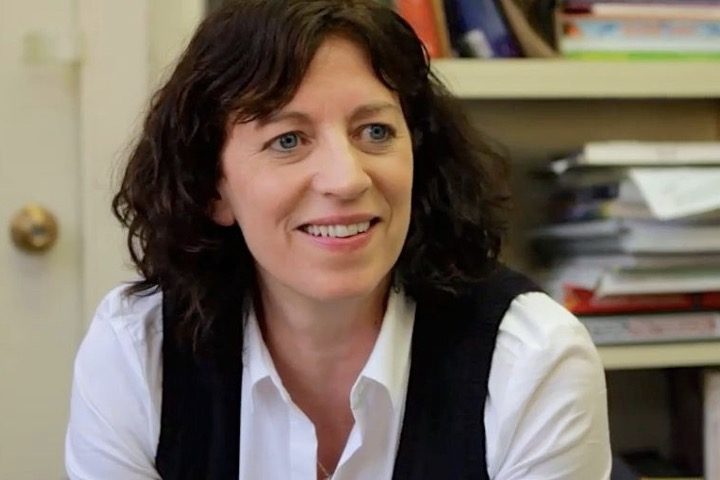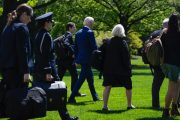
Conservative websites are uncovering so much plagiarism and academic fraud that keeping the roster of professorial miscreants straight is becoming a full-time job.
Yet another example surfaced last week at Stanford, again thanks to the Washington Free Beacon. With the City Journal’s Christopher Rufo, the website is unraveling a plethora of plagiarized doctoral dissertations and journal articles, along with outright bogus “scholarship.”
An anonymous complaint from a group of experts has accused Stanford University Professor Jo Boaler of “reckless disregard for accuracy.” The complaint alleges more than four dozen instances of research misrepresentation.
Boaler is the genius who thought it might be a bright idea for public schools in San Francisco to drop eighth-grade algebra as a required subject. The city reversed the move after math scores plummeted.
The Complaint
The complaint alleges that Boaler “has in 52 instances misrepresented supporting research she has cited in her own work in order to support her conclusions,” the Free Beacon reported:
These include the notions that taking timed tests causes math anxiety, mixing students of different academic levels boosts achievement, and students have been found to perform better when teachers don’t grade their work. This pattern of “citation misrepresentation,” the complaint alleges, violates Stanford’s standards of professional conduct for faculty, showing a disregard for accuracy, and may violate the university’s research integrity rules.
“[D]ue to the potential impact and influence Dr. Boaler may have upon the math education of CA K-12 public school students … it is imperative to investigate the allegations of citation misrepresentation in Dr. Boaler’s work,” the complaint states.
For instance, the complaint alleges, Boaler has claimed that “researchers now know that students experience stress on timed tests that they do not experience even when working on the same math questions in untimed conditions.” But the evidence she cited from psychologist Randall Engle was a “huge misrepresentation” of his material, he said, which dealt with “working memory,” the Beacon reported:
Anna Stokke, a mathematics professor at the University of Winnipeg who has studied this claim and found that it contradicts available evidence, said many math teachers nonetheless seem to believe it — and that their belief seems to stem from Boaler.
“I’ve tried to figure out where this misconception comes from among teachers, that timed tests cause math anxiety, and it often seems to lead back to Jo Boaler’s faulty opinion piece,” Stokke told the Washington Free Beacon.
In other instances, Boaler has said students have “achieved at significantly higher levels” if teachers offered “diagnostic comments” on their work instead of grading them — citing a 1988 study that involved giving a random sample of students a basic language task and some puzzle questions outside of their normal classrooms. The study did not involve an actual academic class taught over the course of several months — a limitation acknowledged by the study’s author but not by Boaler.
Boaler’s role in shaping the school policies and curricula in California is lucrative. The website reported that one school district paid her $5,000 an hour.
“She has also cultivated a high profile in educational and progressive circles,” the site continued:
After she drew negative press for the initial drafts of the equity-focused California math framework that she led, she sought help from Democratic megadonor Laurene Powell Jobs to advocate for the guidelines to California governor Gavin Newsom, according to emails.
Boaler’s misrepresentations, the complaint alleges, might violate Stanford’s Research Policy Handbook, which says that the “importance of integrity in research cannot be overemphasized,” and stresses that faculty have a “responsibility to foster an environment which promotes intellectual honesty and integrity, and which does not tolerate misconduct in any aspect of research or scholarly endeavor,” the website observed.
The handbook says that “research misconduct” includes “fabrication, falsification, or plagiarism in proposing, performing, or reviewing research, or in reporting research results,” but “does not include honest error or honest differences in interpretations or judgments of data.”
As for Boaler’s brainstorm for San Francisco to drop algebra for eighth graders, “Education Week credited Boaler’s work as ‘heavily’ informing the district’s policy,” the website reported when the city reversed course. “Early drafts of California’s math guidance cited data that Boaler had published in support of the ban, which were later debunked. Boaler also touted San Francisco’s policy in research and on social media.”
A spokesman for Boaler told the website that she “is confident in the integrity and expansiveness of the research that backs her work.”
Other Research Fraud
Rufo and the Free Beacon unveiled two other cases of academic misconduct last week.
Yet another complaint at Harvard, Rufo reported, accuses Harvard sociology professor Christina Cross of plagiarizing material for her doctoral dissertation at the University of Michigan.
Cross is the fourth Harvard official accused of misconduct.
The Beacon also disclosed a complaint against the University of Wisconsin’s diversity chief, LaVar Charleston. The complaint charged Charleston with plagiarism and using the same work in multiple publications. Involved in the fraud was his wife, Sherri Ann Charleston, the chief diversity officer at Harvard University. She is also accused of plagiarism.



